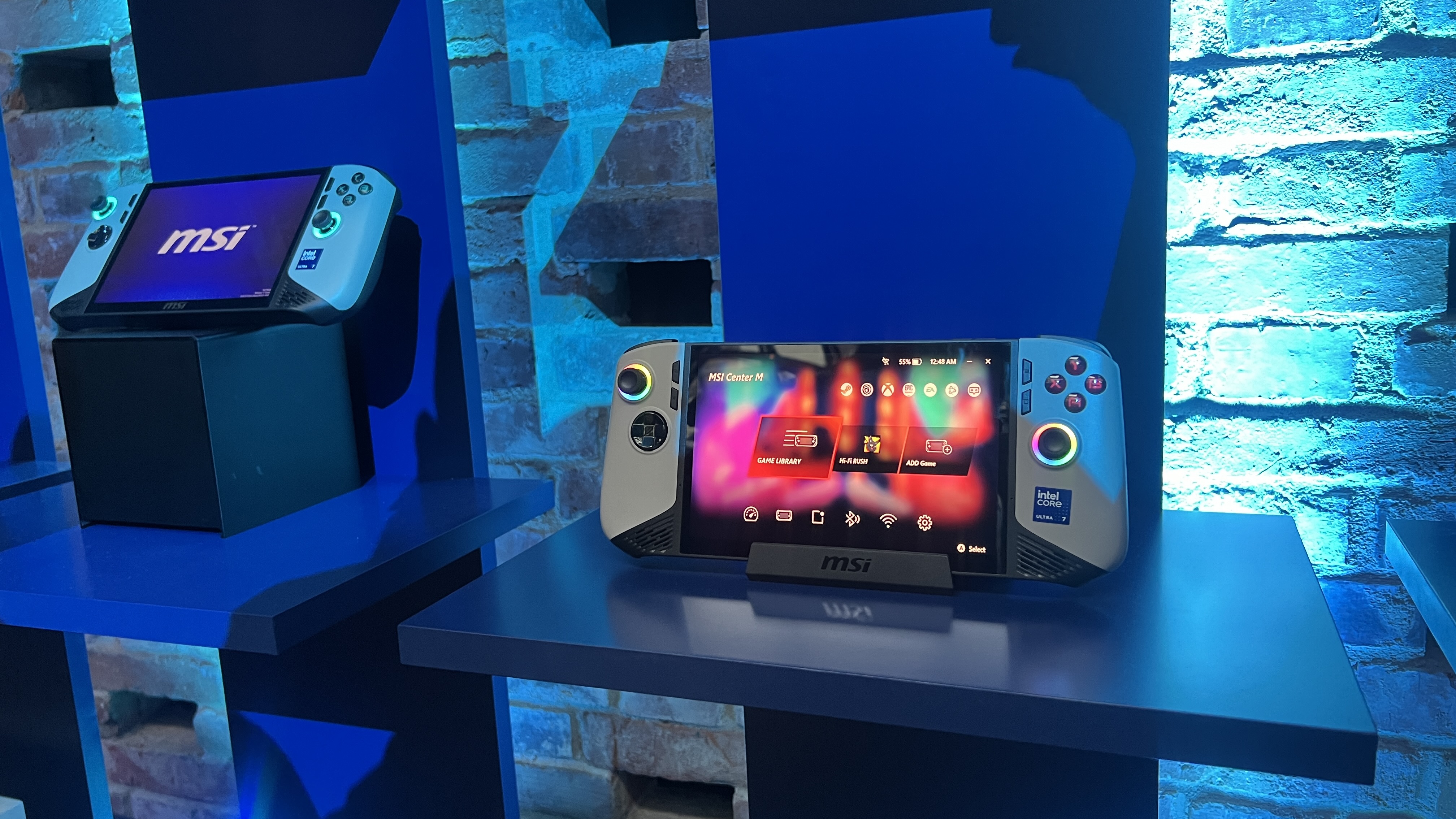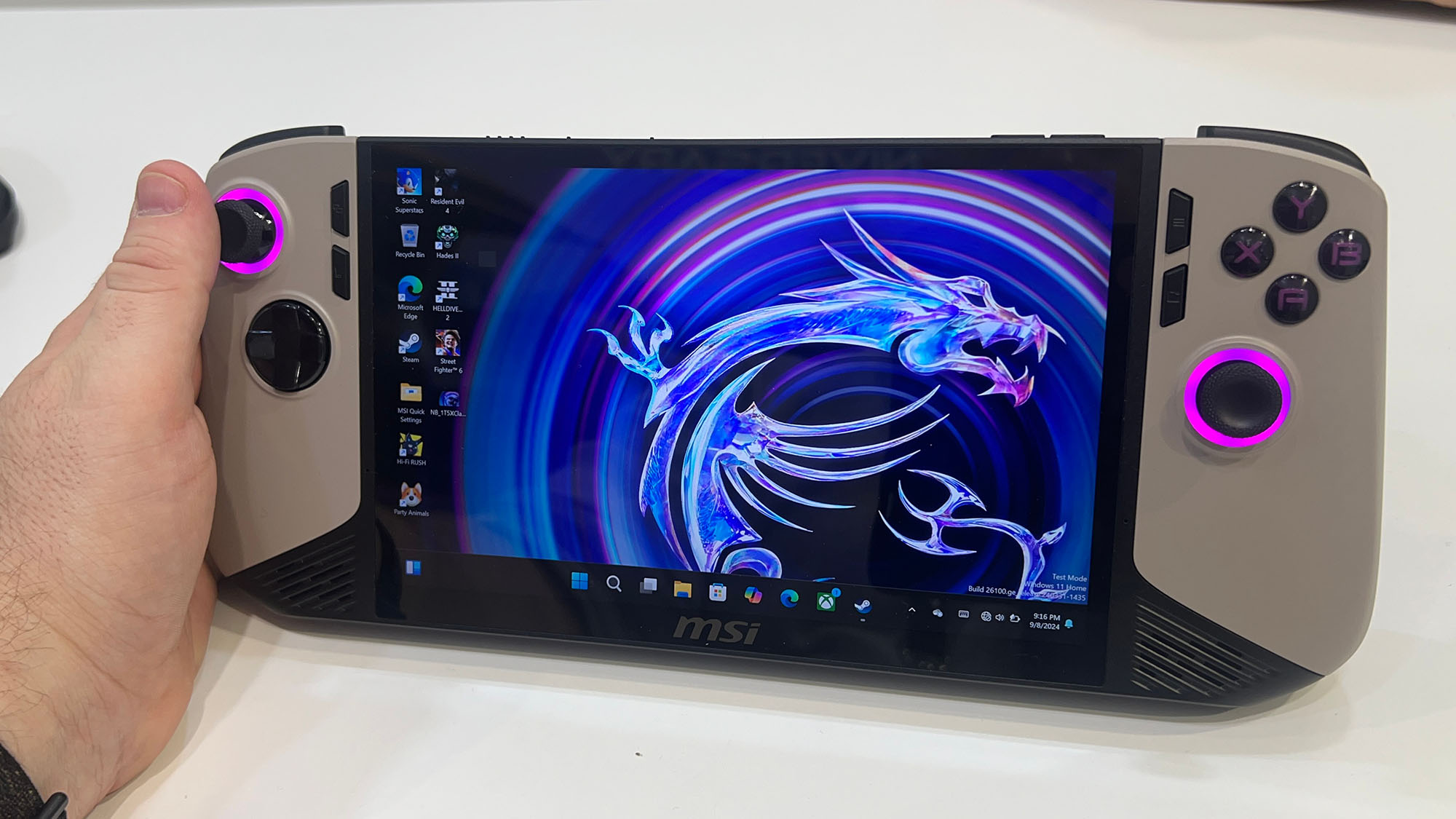Intel Lunar Lake could revolutionize gaming handhelds, going by early tests of Core Ultra 7 CPU
Core Ultra 200V family could be seriously strong – the only snag might be game compatibility with Arc drivers

Intel’s Lunar Lake processors have caused quite a stir since the mobile chips were launched, and a fresh dive into the capabilities of these CPUs in the world of gaming handhelds won’t do the range any harm in terms of all the positive chatter.
Of course, there aren’t any handhelds on sale with a Lunar Lake chip – not quite yet – so we can’t have a definitive test in that respect, but as Wccftech spotted, Geekerwan (on Bilibili) has run a Lunar Lake CPU through its paces in the low power envelope such a gaming portable will require.
Specifically, Geekerwan (a well-known presence on the hardware scene) tested the Intel Core Ultra 7 258V (Lunar Lake) processor in a Yoga Air 15 laptop, running at 15W, pitted against the Steam Deck (with its custom AMD Zen 2 chip) and Asus ROG Ally (with AMD’s Z1 Extreme). The Lunar Lake benchmarks were conducted with the laptop set at 720p resolution to reflect handheld usage.
The Lunar Lake CPU proved to be over twice as fast (2.3x) as the Z1 Extreme, and around 35% faster than the Steam Deck’s custom AMD silicon. The Core Ultra 7 258V was also compared to the Ryzen AI 9 HX 370 and was 67% quicker than that laptop CPU, to boot, at this low power envelope.
In fairness, the handhelds were drawing a bit less power – the Z1 Extreme used 9W, as opposed to 12W with the Lunar Lake chip (with the motherboard using the extra juice, keeping under 15W in total). So, the Intel CPU does have a bit more power supplied, but even with that taken into account, the results clearly reflect some major performance gains.
Geekerwan’s testing of Cyberpunk 2077 showed the Core Ultra 7 258V hitting 28 fps (with FSR on) compared to 13 fps and 11 fps respectively for the Steam Deck and ROG Ally (and 13 fps for the Ryzen AI HX 370).
On top of that, the laptop chips were also tested at their full power capacity, and the Lunar Lake CPU running at 30W (in 1080p gaming) was not that far behind the Ryzen AI HX 370 which is an 80W part – indeed in some games it was right up there with the AMD chip.
Get daily insight, inspiration and deals in your inbox
Sign up for breaking news, reviews, opinion, top tech deals, and more.

Analysis: Intel’s clawing back into the game
This is exciting stuff, make no mistake. We were hoping that Lunar Lake might make excellent processors for gaming handhelds, and this is exactly what this early testing appears to demonstrate – with the obvious caveat that this is just one round of benchmarking, and as noted, we don’t have the Core Ultra 7 258V actually inside gaming handhelds just yet.
That time is likely not too far off, though, and it seems that these new mobile processors are going to make far more of an impact on the handheld gaming arena than Intel’s previous Meteor Lake chips managed. The CPU inside the MSI Claw is Meteor Lake, as you may recall, and the sequel coming hopefully early next year – the MSI Claw 8 AI+ – will upgrade to Lunar Lake.
So, that gaming portable could be pretty awesome, as we noted in our hands-on with the Claw 8 AI+, albeit with a wrinkle on the graphics side. Lunar Lake packs Arc (Battlemage) integrated graphics, and while this is part of that excellent gaming performance within a lower power operating environment, it’s also something of a problem with older games.
As you may be aware, Intel’s Arc drivers were launched from scratch a couple of years back, and old titles are often left out in the cold with wonky support and possible compatibility issues. Really, it depends on what you want to play, but if classic PC games or indie titles are your bag, that could prove more troublesome when using an Intel processor as opposed to AMD. (Also, it should be noted that not every PC game runs on the Steam Deck, either – for different reasons).
Another crucial element for gaming handhelds is battery life, and the sequel to MSI’s Claw also makes some big promises in this department. Perhaps unsurprisingly, then, Geekerwan found the Core Ultra 7 258V in the Yoga Air 15 almost matched the battery life of a MacBook Air M3 in battery longevity testing (this Core Ultra 7 actually outgunned the Apple M3 in Lenovo's claims for a Yoga Slim notebook, it should be noted).
All the early signs point to Lunar Lake being something of a revelation for gaming handhelds, so let’s hope this pans out the way it looks given these first extremely promising glances at portable performance.
You might also like
Darren is a freelancer writing news and features for TechRadar (and occasionally T3) across a broad range of computing topics including CPUs, GPUs, various other hardware, VPNs, antivirus and more. He has written about tech for the best part of three decades, and writes books in his spare time (his debut novel - 'I Know What You Did Last Supper' - was published by Hachette UK in 2013).